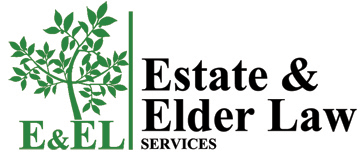December 2021 Newsletter

From The Certified Elder Law Attorney's Desk:
William W. “Bill” Erhart
Predatory Guardians
My friend Amos Goodall, a Certified Elder Law Attorney, wrote an interesting article for the National Elder Law Foundation that I think is worth repeating in a modified version.
Nationwide, guardians oversee an estimated 1.3 million adults and $50 billion of their assets, citing Brenda Uekert, principal court research consultant at the National Center for State Courts.
The Movie, “I Care A Lot” raises a problem that has appeared in the news altogether too often–the court names a guardian for an isolated person who appears to have deteriorating mental status, and the guardian proceeds to fleece them of all assets and–at least suggested in one case reported in Florida, then signs a Do Not Resuscitate order over the person’s objections to end their life.
Here are some extreme examples across the country:
A professional guardian in a southern state was named as guardian for over four hundred persons. Allegedly, she signed “DNR” orders for at least one of her wards over his objections, and when her office was searched by authorities, cremated remains of ten humans were discovered. The owner of a chain of nursing homes may have paid this person as much as almost four million dollars over the years.
Another professional guardian is accused of hiding her ward in a place where the family could not find her. The family said it had to hire private detectives to find her. Finally, a government attorney appointed as the guardian of a man was charged with transferring hundreds of thousands of dollars from the man’s investment account into the attorney’s personal accounts and using at least some of it for personal expenses unrelated to the guardianship.
In the Philadelphia area, a person who had been convicted (and sentenced to jail) in another state was removed as guardian in almost a hundred cases after family members raised questions about the person’s handling of wards’ financial affairs.
In Delaware, the Court of Chancery has strict rules governing the conduct of guardians, requiring, among other things, that the attorney retained by a client petitioning for guardianship review in detail the responsibility of the guardian. And both the petitioner and attorney are required to file affidavits with the Court declaring that the petitioner understands the duties and the attorney, that the duties were explained.
While their rules offer some protection, clients ask, “How do I protect myself?
Most of the victims appear either to have no support network in place or to have suffered the unexpected loss of their only trusted supporter.
One suggestion is to use the recently-created Social Security procedure to designate a representative payee in advance. Social Security benefits are often seen as “low-hanging fruit” by predators. An incapacitated person probably needs a representative payee to apply for and manage benefits. Once a representative payee is in place, the Social Security will keep sending monthly checks until it learns you have died. It is a simple process to designate a payee in advance, and that designation takes precedence over anything a guardian might do.
Second is to have an active, articulate agent under a power of attorney. A guardianship is usually unnecessary if the proper agent with the proper power of attorney is in effect. Many folks make the mistake of choosing the child who is geographically closest (or oldest, or some other emotional criteria). You should consider the most intelligent, assertive, trustworthy person around, hopefully younger.
Third, is to consider having a trust. At the time you prepared your Will, you probably discussed trusts with your attorney who probably explained that trusts are not required, they can be very useful in the right circumstances. If you are concerned about future control of your assets, a valid trust is ordinarily not affected by a guardianship order.
Finally, since there are sometimes problems with individual fiduciaries, designating a professional of your own choice to manage your affairs or as the replacement for a trusted family member or friend--provides an independent, reliable entity to manage your matters. There is some cost to having a professional, but many will base their fees on the time involved, and if they're simply in standby status until needed, this is minimal. Like any other insurance, the expense is dwarfed by the harm insured against.
The idea is to have someone trustworthy who knows you making decisions for you as well as to remove temptation for predators to seek control over your assets. If there’s no money in it for them and if a third party has the right to question their decisions, the predators will stay away.
